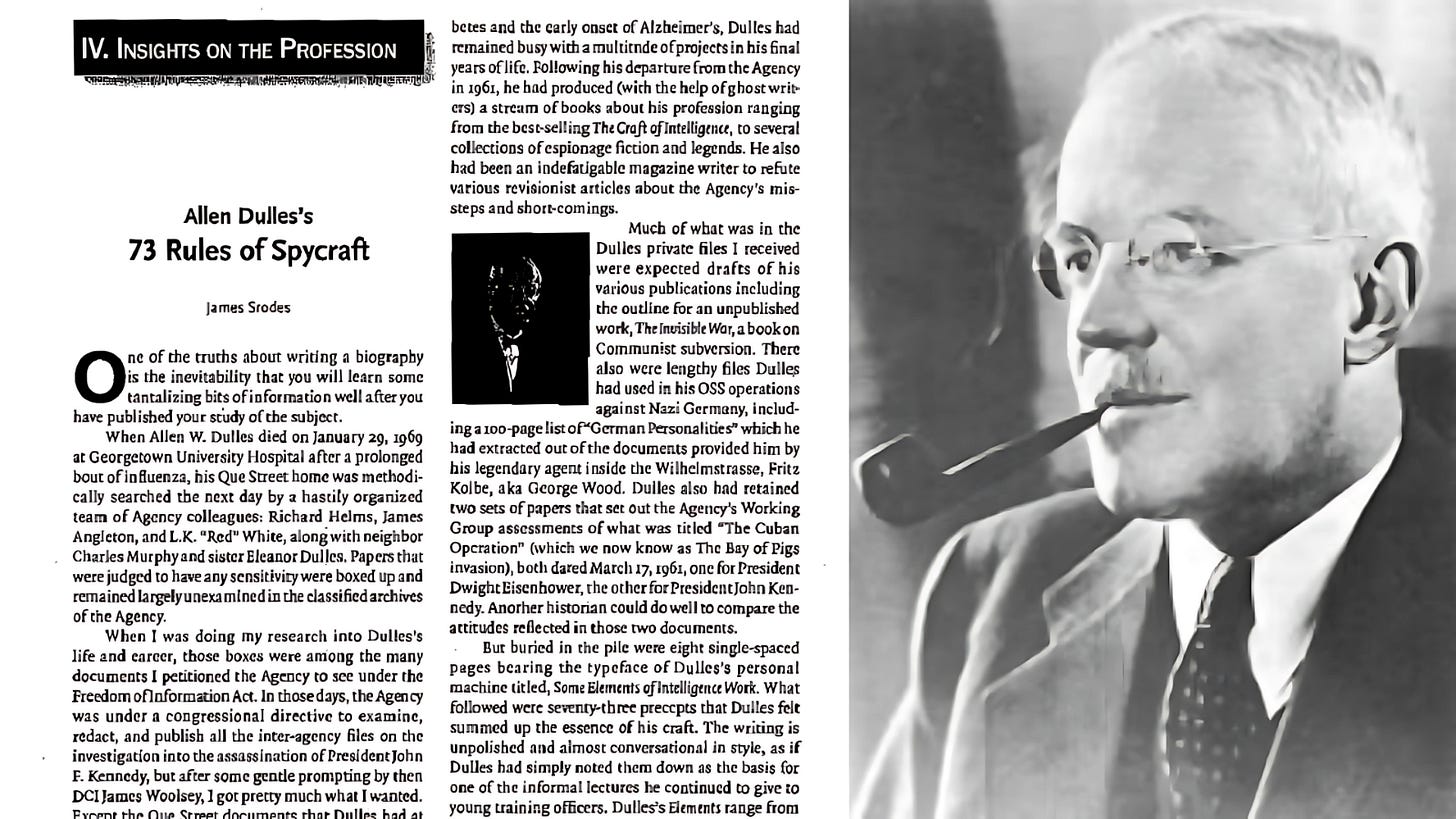Allen Dulles’ 73 Rules of Spycraft: Do They Still Matter in the Modern World?
The Enduring Legacy of Allen Dulles’ Spycraft
Allen Dulles, the legendary CIA director (1953-1961), distilled decades of intelligence experience into 73 Rules of Spycraft—principles that remain strikingly relevant even in today’s digital and AI-driven world. Originally published in Intelligence: Journal of U.S. Intelligence Studies (2009), these rules of…


